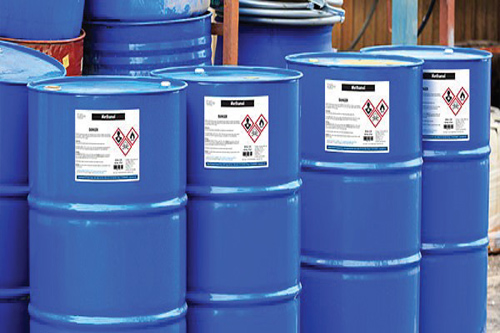Are you seeking for strategies to maintain the quality of your water treatment chemicals? Maintaining water treatment chemicals is crucial to making sure your system is operating effectively, safely, and efficiently. Chemicals used in water treatment are crucial for filtering and sanitizing water, eliminating dangerous toxins and germs, and maintaining the water's safety for consumption. These substances, however, have a tendency to deteriorate or lose their potency over time, which can result in expensive repairs, health risks, and environmental issues.
You will find a thorough explanation of how to care for your water treatment chemicals in this page. From testing and handling through storage and handling, everything will be covered. You can make sure that your water treatment system is operating at its peak efficiency and that the water you consume is still safe and healthy to drink by adhering to these recommendations.
For several reasons, it's crucial to maintain the chemicals used in water treatment. Most importantly, it guarantees that the chemicals continue to filter and disinfect water effectively. These substances may get contaminated, lose potency, or deteriorate over time, which might result in less effectiveness and increased health hazards. Second, regular upkeep of water treatment chemicals may avoid costly repairs, equipment damage, and system failures. Last but not least, it may contribute to environmental protection by ensuring that chemicals are handled, stored, and disposed of in a safe and responsible manner.
Keeping Water Treatment Chemicals Safe:
- The performance and safety of water treatment chemicals depend on how they are stored. The following are important advice for keeping chemicals used in water treatment:
- Keep chemicals in their original, labeled containers, and make sure the writing on the labels is clear and readable.
- Away from direct sunlight, heat sources, and moisture, keep chemicals in a cold, dry, and well-ventilated area.
- Chemicals should be kept apart from incompatible materials such acids, bases, and oxidants.
- Keep chemicals away from children, pets, and unauthorized individuals.
- Store chemicals away from consumables like food and drink in a dedicated location.
- Check containers often for leaks, damage, or warning indications of harm, and replace them as required.
For the purpose of preventing mishaps, injuries, and exposure to dangerous substances, handling water treatment chemicals requires the appropriate training, tools, and protective clothing. For handling water treatment chemicals, remember the following key guidelines:
- Wear the proper PPE, depending on the chemical and work, such as gloves, goggles, a respirator, and an apron.
- Never stray from advised doses or practices while handling or combining chemicals; always follow the manufacturer's recommendations.
- To prevent contamination or erroneous measures, use only clean, dry measuring equipment, such as beakers, graduated cylinders, and spoons.
- Avoid breathing or ingesting dust or fumes when mixing chemicals, and work in a well-ventilated location.
- Never combine unsuitable chemicals, such as bleach and ammonia, as this might cause the discharge of explosive or hazardous fumes.
- Clean up spills or leaks immediately and follow appropriate procedures for containment, deactivation or disposal.

It's crucial to test water treatment chemicals to make sure they're reliable and secure. Here are some crucial pointers for assessing compounds used in water treatment:
- Use only approved techniques and tools for testing substances, and always follow the manufacturer's recommendations.
- Regularly, at least once every week, check chemicals
- Keep track of all test outcomes, including dates, times, and readings. Then, compare the findings to suggested ranges or standards.
- Based on test results, modify chemical dosages or treatments, but never go over approved limits.
- Use only calibrated, precise test equipment, and replace it if it becomes outdated or broken.
- If you have any queries or worries regarding the test design, execution, or outcomes, speak with a water treatment expert.
Chemicals used in water treatment must be disposed of with caution and in accordance with local laws. Here are some crucial recommendations for managing chemicals used in water treatment:
- Use only permitted techniques and tools for disposing of products, as directed by the manufacturer.
- Never dispose of chemicals in the trash, recycling bin, or compost bin, or pour them down drains, sewers, or into rainfall.
- Waste chemicals should be kept in sealed, labeled containers in a specific location away from consumables like food and drink.
- To get advice on appropriate legislation and disposal procedures, get in touch with a certified waste management firm or hazardous material handling facility.
- The date, time, and quantity of trash produced and disposed of should all be included in records of disposal operations.